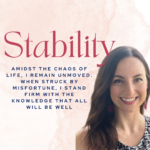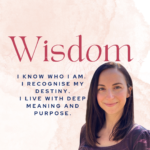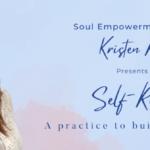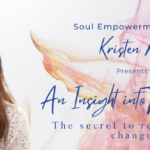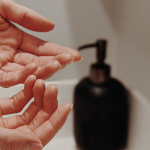
Finding Balance in a Busy Modern World.
How can we better handle the stress of the fast paced modern world? Our brains are not equipped to handle the pressures we come under on a day to day basis. As the world speeds up we find ourselves under ever increasing loads of stress. This can lead to anxiety, depression and a host of mental disorders. This eventually begins to effect our physical health, our relationships with others and our quality of life.
There are many ways to balance out our lives and decrease stress to create a positive mind-space so that we can live happier lives.
Your brain influences your behaviour.
Your brain is the main influencer of your reaction to stress.
- The reptilian brain controls the body’s vital functions such as heart rate, breath, body temperature and balance. It includes the brainstem and the cerebellum. It handles primal urges such as eating and mating. It decides what’s most important for our survival.
- The limbic system includes the hypothalamus, hippocampus, amygdala, and several other nearby areas. It handles our emotional life, and has a lot to do with the formation of memories.
- The prefrontal cortex is a part of the brain located at the front of the frontal lobe. It takes part in a variety of complex behaviors, including planning. Iy contributes to personality development, handles self-control and consciousness. It also helps us deal with intellectual tasks.
These parts of the brain work together to assess each situation. This means that sometimes our actions and thoughts may contradict each other based on the different interpretations each part of the brain handles. Have you ever found yourself deciding upon a course of action and then doing the exact opposite action anyway?
Our emotions and behaviour are also affected by the hormones seratonin, dopamine and endorphins (see our post on Happiness Hormones). These hormones help with energy, stress reduction and they drive us to seek rewards.
Stress makes you sick.
It is common to blame our feelings of anxiety or depression on stress. However, humans have always had to deal with stress, in fact life is inherently a series of stresses we must face. The advantage our ancestors had was that stressful experiences were often short lived. Once they had escaped a potentially dangerous situation they could go about their day in a relaxed way.
These days our brains perceive much more to be stressful because many of the situations we face daily we can’t run away from. If we find the commute to work to be stressful, or the boss to be demanding our need for job security is much stronger than our urge to run away or fight, so we remain in the situation allowing stress hormones and tension to build up in our bodies. Stress utilises energy and can leave us feeling exhausted. It affects our immune systems and makes us vulnerable to illness and disease.
Our emotions stay unexpressed in our bodies.
Basic emotions, like anger are the same now as they were millions of years ago. Whilst our world is incredibly advanced compared to how it was a few hundred years ago before the industrial revolution, our emotions are not as developed, making it difficult to cope.
In the past an emotion such as anger was beneficial to help us survive. Anger empowers us to fight for our survival when necessary. In today’s world anger is often seen as an unacceptable response to those things that make us stressed. We are taught to repress our angry emotions and we have no outlet to physically express our anger like we may have had in the past where anger might equate to a fight. Whilst we have evolved to the point where a self-aware individual can name the emotion and talk about their feelings of anger they are not given the space to express the physical energy that is built up in the experience of the emotion. Hence, we carry it around in our bodies unexpressed where it causes tension and may eventually arise in an unexpected outburst.
Simarly, with envy. In ancient times our ancestors would use the emotion of envy to move them forward in the social hierarchy, this meant more food and security. Today we experience envy in relation to what we see that others have, we covet the good fortune of others and feel the need to strive to achieve the status of our peers. This drive for material status to show our worth to others pushes us to buy bigger houses and cars. It drives us to work harder and longer hours to achieve a promotion and a higher pay check. But there’s always more to aim for and so we continue to strive to achieve more and continue to focus on what we lack, building negative thought patterns about our self-worth.
How to reduce the influence or daily stress in our lives.
Within spiritual traditions such as Daoism and Yoga there was an understanding that to achieve the goal of enlightenment or inner peace human beings had to remove stress from their daily lives and practice ways to create a balance between rajassic or yang energies and tamasic or yin energy. A balanced way of life involves living in a way that allows for the two ways of being to exist but suggests that we can maintain harmony by following a middle way between the 2 opposites. We have to learn to balance out our ‘go go go’ energy with enough rest to reduce stress in our lives and be happy.
Yoga encompasses not only asana (posture practice) but includes mindfulness, meditation, breath work, sensory deprivation, self-study, compassion, acceptance, personal cleanliness, non-covetousness, non-harm, letting go and dedicating our life work to a higher purpose. To practice yoga is to practice a way of life that is designed to help us achieve our human potential. Drawing from the teachings of Yoga we can bring elements of this into our life through the daily practices including:
-
Exercise – movement helps us to integrate mind and body. it also helps us to unlock the tension we hold in the body through holding on to emotions.
-
Diet – a diet full of nutrients will benefit the body and the mind by fueling the brain with what it needs to combat stress.
-
Mindfulness – allows us to release the future and past and focus on the present moment free from stress and anxiety.
-
Letting go – if you carry the burden of debt or feel that you have too much stuff to take responsibility for, modern day practices such as minimalism can help you to release the idea that you need stuff to be happy. In all spiritual traditions it is believed that less is more when it comes to happiness and a daily practice of letting go of the things that do not serve you can help you release your burdens.
-
Self-care – is about acknowledging what it is that we need to maintain a healthy sense of self. Self care may include working with therapies such as kinesiology to help us with our self-enquiry so that we can better understand what we need and how to fulfill those needs for ourselves.
Affinity Wellness therapists are trained to help you find balance.
Traditionally a kinesiology session is called a ‘balance’ because it helps us bring the body back to homeostasis, a point of harmony. We use Kinesiology in combination with Counselling, Dreamwork, Yoga, Sports Therapy, Nutrition and Vibrational medicine practices can help you connect you to your purpose and balance the body and mind.
Suggested treatment plan.
We recommend:
- An initial 90 minute kinesiology consultation followed by 3 – 5 standard consultations 1 -2 weeks apart.
- Further follow-up standard consultations should be spaced between 2 -4 weeks apart or booked as needed.


Kristen Ross founded Affinity Wellness in 2007 and since has helped hundreds of clients to unlock their Inner Guidance, Unleash their potential and create lives they love.
With a history in the management of artists. Kristen had the opportunity to help guide the careers of many professional actors and artists, helping others thrive personally and professionally by connecting to their intuition and inner compass, this led her to study healing modalities such as kinesiology and counselling to enhance her work as a soul empowerment guide.
Kristen combines a striking combination of energy healing (kinesiology), counselling, coaching, dreamwork, meditation and yogic medicine practices to tap into the many facets of the self, mind, body and soul and release the layers that block her clients from accessing their intuition and self-love.
She believes that your life is your spiritual practice and that every decision you make is a part of your journey towards peace, power and enlightenment.
Everything you create and achieve comes from your ability to love and accept yourself and to do that you must engage in inner work.
Kristen currently runs a private online practice servicing individuals across Australia, New Zealand and the UK based in Melbourne, Australia.



